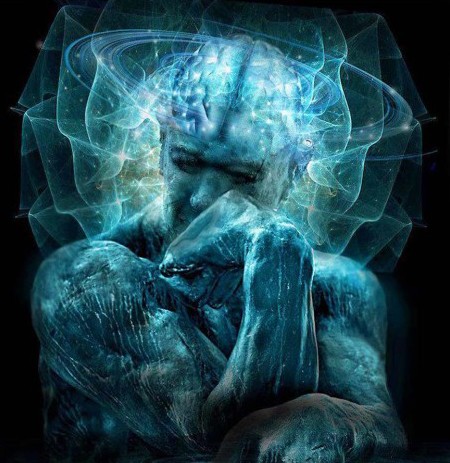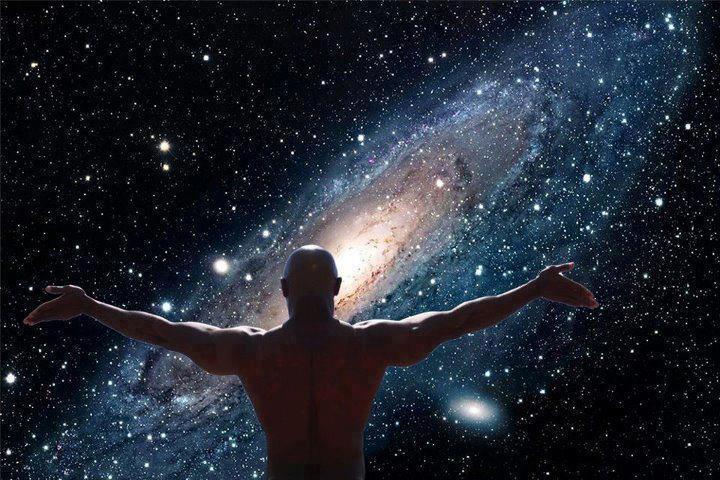“Humans are the pinnacle of creation.” That idea has long been discredited. But where do humans fit in the universe, and why we don’t we fit in nature on earth?
 Jane Goodall best expresses the prevailing view in the scientific community of humankind’s place in nature: “When I first began working with chimpanzees, it was thought that the difference between us humans and the rest of the animal kingdom was one of kind, and we were totally separate, totally unique, and totally superior.”
Jane Goodall best expresses the prevailing view in the scientific community of humankind’s place in nature: “When I first began working with chimpanzees, it was thought that the difference between us humans and the rest of the animal kingdom was one of kind, and we were totally separate, totally unique, and totally superior.”
“Chimpanzees are so like us biologically, and as I discovered behaviorally, that science began to change the way it was thinking. And today it is accepted that we are part of and not separated from this amazing, wonderful and exciting animal kingdom.”
Another guest in the interview then asked, “Is it true that only humans are not necessary to the chain of evolution?” Goodall responded, “I don’t know, but the rest of the world would do better without us, that’s for sure…we’re doing so much to harm to the planet.”
As much as I respect Goodall’s work, this “theory of human nature” is philosophically superficial and wholly unsatisfying. It amounts to a whitewash of man’s destructiveness, with an intimation of misanthropy.
Such a view, which has become doctrine, is as flawed as the “humans are the pinnacle of creation” worldview. It skates on the surface of the human conundrum, and assumes that if only we could realize that “we are part of and not separated from this amazing, wonderful and exciting animal kingdom,” humans would live in harmony with the earth.
The comforting truism that humans aren’t actually separate from nature merely begs the question: How and why do we think and act as if we are separate?
Throughout my life, my philosophical inquiry has been into human nature and the human prospect. Though I feel I’ve had an original insight or two into human evolution, consciousness and transmutation, I haven’t been able to find what philosophers call “a fair and sympathetic hearing” for them.
Essentially, despite what Goodall and other scientists maintain, the human species does in fact represent a difference in kind from the rest of the animal kingdom. This truth isn’t faced and examined in part because it continues to be conflated with the “totally unique and totally superior” aspects of the former misconception.
Man’s increasing planetary destructiveness proves that we aren’t superior, simply very anomalous. And the human anomaly can’t be explained away with truisms and pleasing platitudes. Indeed, Goodall’s studies of nascent warfare and even genocide among chimpanzees attest that the problem is much deeper than simply our misguided species.
The evolution of fully conscious, symbolic thought is the qualitative difference between us and the rest of the animal kingdom. Having evolved the capability to consciously separate and recombine, we could not, and still cannot, stop doing so physically and psychologically. We are separate because thought is separative in its basic nature, and because our consciousness is based on thought.
“Planet of the Apes” notwithstanding, if chimps had our cognitive capacities, they may be as divisive and harmful as we humans are. On the other hand, bonobos (formerly called pygmy chimpanzees) are at least as smart as common chimpanzees, and they are true “make love not war” primates.
Some see this as evidence of the “malleability of human nature.” But the tremendous momentum of human fragmentation, fed by globalizing  individualism, doesn’t bear that out.
individualism, doesn’t bear that out.
The growing human crisis is fundamentally a crisis of consciousness as we’ve known it for tens of thousands of years. Therefore radical change in the human species has to be deep enough to have physical correlates in the brain. (AI is the monstrosity of thought’s total domination in the brain.)
Insight alone is what brings about the transmutation. That might simply involve a “rewiring” of existing neural circuits, but it would mean a completely different kind of human being.
Humans have been “exapted” for another order of consciousness, which means we have the latent capacity for a qualitative leap in consciousness. Though it would occur spontaneously, it requires arduous and diligent work of consciously igniting the flame of attention in the brain.
With undivided observation (as the observer), the flame of attention ignites and burns intensely, completely quieting the mind-as-thought, and ending the movement of psychological time. (Personally I’m asking: why does such attention need to be re-lit each day?)
Only the human brain on this planet has the capacity to bring the benediction—the conscious awareness of the infinite, holy awareness that permeates the cosmos. “Higher thought” gave the brain this capacity, but it’s become a tremendous impediment to awakening the potentiality within us.
Gaining an abiding insight into the nature of thought, and deeply quieting the mind-as-thought in undivided, undirected attention, the human brain may then actually grow into “the pinnacle of creation.”
Martin LeFevre
Link: https://charlierose.com/videos/30376

